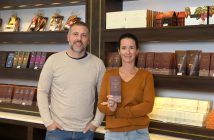Its cocoa almonds come from the family property in Sao Tome and Principe, Africa, a former Portuguese colony
Those who go to Porto can’t help but notice the Equador Chocolate Shop’s three stores, which, in addition to an exquisite design that refers to the old cocoa warehouses, makes the customer savor the moment with all their senses alert. Whether for the incredible aroma of freshly roasted cocoa almonds or the diversity of fruit and spice infusions in the Bean to Bar chocolates displayed in stores, or even for the tastings that join chocolate and the Port wine, it is impossible to remain indifferent.
The Equador Coffee Shop emerged in 2015, from the combination of efforts by the Portuguese couple, Teresa Almeida and Celestino Fonseca, both graduated designers. At the time, they joined a descending Portuguese chocolate shop who had learned all the technique of French patisserie and started the project.
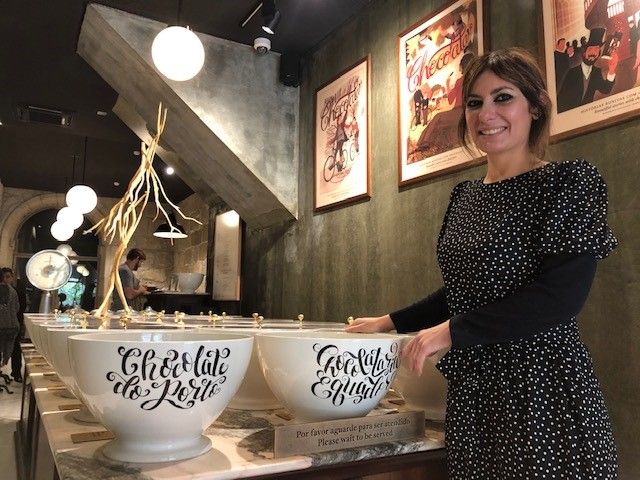
Santo Antônio Ranch, in Sao Tome and Principe: from there come cocoa almonds
Until, in 2015, they became interested in raising the Tree to Bar chocolate. They bought the Santo Antônio ranch property in Sao Tome and Príncipe, the smallest country in Africa, a former Portuguese colony from 1470 to 1974, located exactly on the equator line. It was the Portuguese, by the way, who introduced cocoa crops – from the Brazilian Amazon – and sugar cane. Cocoa arrived there around 1850, from the Forasteiro (Foreigner) variety.
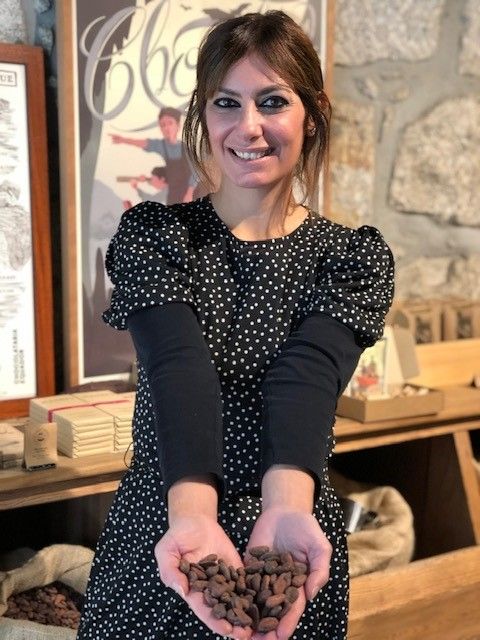
“We make Tree to Boutique chocolate”.
“After Portugal returned the colony, the world forgot that piece of land that, for us, refers to paradise. The difficulties of access made the development of the country compromised. But we always had an affective and historical memory relationship between the two countries. And we wanted to ensure that the best practices in the whole process of chocolate processing, from planting and working with employees, were employed,” he explains.
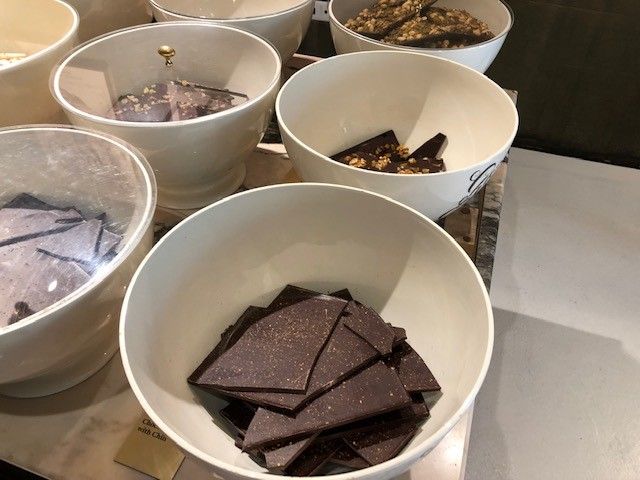
Unlike cocoa from other sources, such as Peru, where all species are cataloged, everything is to be done in Sao Tome and Principe. We still know very little about this origin.
When they got there, there were only two companies working with the local cocoa, Italian Claudio Corallo (www.claudiocorallo.com) and a large company that buys almonds from local producers and resells them in Antwerp.
Cocoa and agrotourism
Today, the Santo Antonio ranch derives its livelihood from cocoa and agritourism, once its headquarters, a colonial house, has been entirely restored and has been remodeled to comfortably house tourists from around the world. The entire property is 70 hectares and is touched by a team of local workers. They are mostly from the Amenolado variety, with a complex aromatic richness and a very particular sensory profile. The almonds are sent to the city of Porto, in the Bonfim neighborhood, where the brand factory, which employs about 20 people, was divided into two separate units, namely the production of chocolates and ganaches made from processed chocolate and those from Bean to Bar chocolate, made from the almond of Sao Tome and Principe. “It made no sense for us to discontinue our line of processed chocolates, but all the new products we launched are Bean to Bar,” says Teresa.
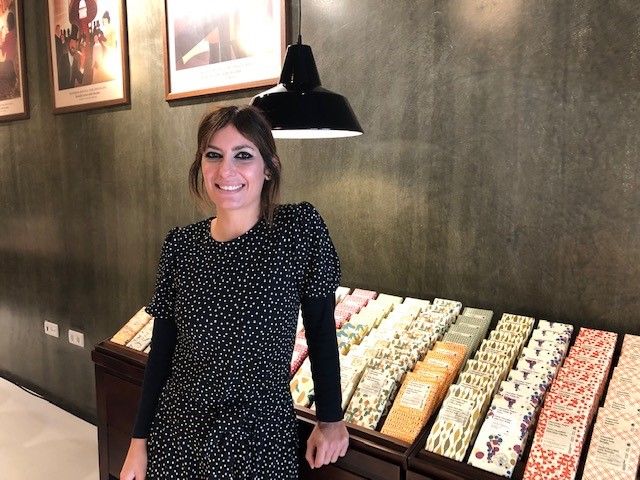
“Our work focuses on regaining the international prestige of Sao Tome and Principe cocoa”.
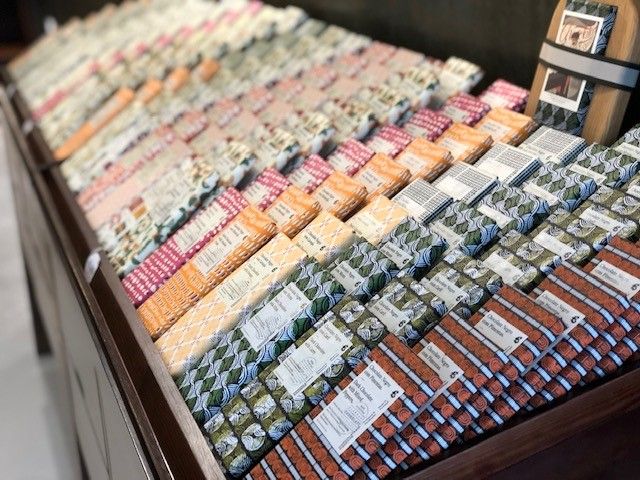
The bars: with port wine, gin, fruits and spices
The Equador works with Bean to Bar with five percentages of cocoa in its bars: 100%, 83%, 73%, 68% with nibs and 53% with added milk. Each of the percentages of cocoa can also include fruit and spices and even porto wine and gin, a launch by the company. “Our product line is quite large and we are always researching new combinations, preferably unusual”, says
Its Bean to Bar recipes have nothing but cocoa, sugar from Mauritius, Africa, and true vanilla from Madagasgar. “Only a few bars carry sunflower lecithin, which helps to work on the chocolate emulsion,” emphasizes Teresa.
Bean to Bar Plant with a cutting edge machinery
Its production is one and a half tons of chocolates per year, produced with Italian machinery, by the Selmi brands (www.selmi-group.com) and FBM (www.boscolo.it). The almond roaster is by Portuguese company Joper. “Joper is well known for producing coffee roasters. Our machine was the first produced by the company to be used in the cocoa almond roasting. Since then, they have been building a machinery for chocolate makers,” she says.
In this sense, it is interesting to note that although the total production of Bean to Bar chocolates in Portugal is much lower than the Brazilian, it is a step ahead, thanks to the technology implemented in the roaster used. It can be connected to a computer, allowing different roasting profiles to be created and replicated, as with specialty coffee roasters.
In Brazil, the only roaster producer that could meet our domestic demand, Átila, has not yet been interested in producing a suitable machine for roasting cocoa beans.
Where to find
The Equador Coffee shop currently has six own stores, three in Porto, one in Lisbon, one in Braga, two in Spain, Barcelona and Girona and two franchises: in Doha, Qatar, the Middle East, and in the city of Coimbra, in Portugal. “Our business model is ready to expand wherever there are lovers of good chocolates,” the businesswoman emphasizes.
In addition to these addresses, the brand’s Portuguese chocolates can also be found in Paris at Le Bon Marché (www.lagrandeepicerrie.com) and at Merci (www.merci-merci.com), one of the most upscale shops in town. Also in Japan, which is one of the largest chocolate consuming markets in the world.
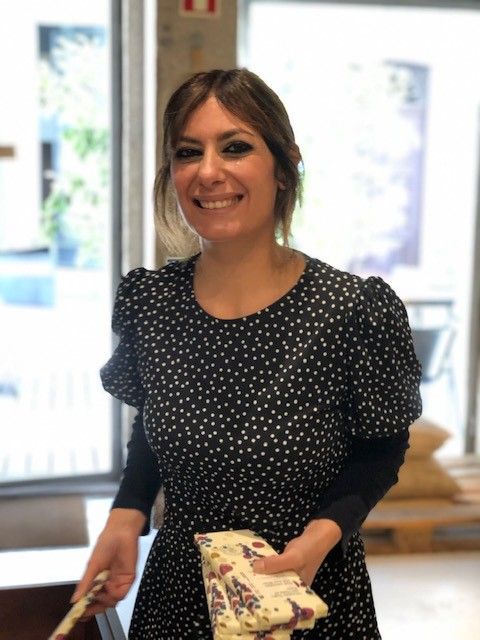
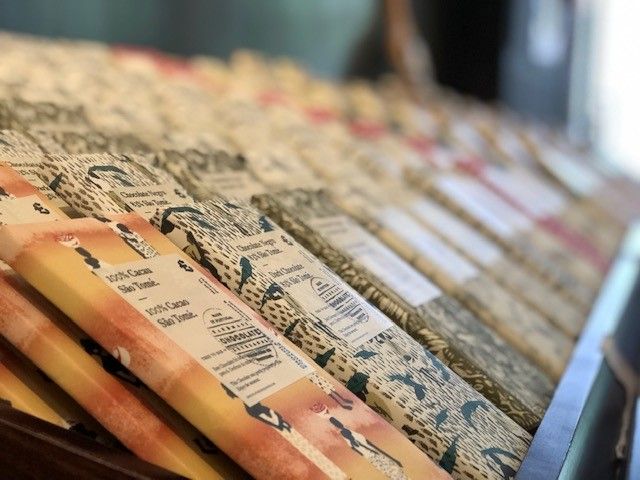
For more information on where to find the chocolates, visit: www.chocolatariaequador.com


